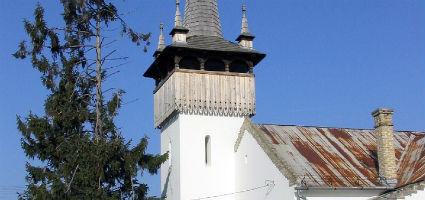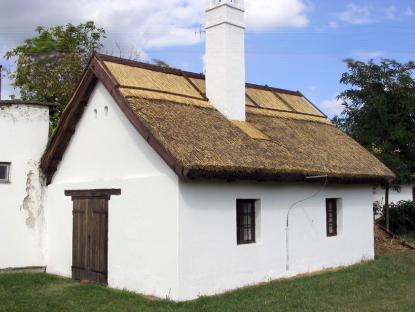2026. January 8. Thursday
Pataj Museum - Dunapataj
 |
Address: 6328, Dunapataj Ordasi utca 7.
Phone number: (78) 425-972
E-mail: patajimuzeum@index.hu
Opening hours: *Mon-Thu 10-12, 13-15:30
Also at other times on prior notice |
Museum tickets, service costs:
|
Ticket for adults
|
200 HUF
|
/ capita
|
|
Ticket for students
|
150 HUF
|
/ capita
|
|
Ticket for pensioners
|
150 HUF
|
/ capita
|
Besides the modern furnishing of the peasant house of Pataj, the visitors may get acquainted with the rich selection of the ethnographic collection of the museum at the permanent exhibition. We are to introduce the diversity and wealth of this collection.

The compilation of the museum has several sections: the objects and documents are mainly from Pataj and its area; among the ethnographic objects we can find painted wooden crosses, coffins of children, equipments, carved and painted chests, potteries, carved bricks, etc.
The material on the local history connected to Pataj is also noteworthy: seals, maps from the 19th century, etc are shown.
The archeological material is made up of urns from the Bronze Age, potteries of the original settlement, jewelry and other valuable objects.
The material on the history of technique is a remnant of the deeds of the artisans of Pataj: the bottles of soda makers of Pataj, equipments of agriculture, scales etc are displayed.
The library has over 2500 volumes. The most valuables are those 1300 books that have data on Pataj, these all vary in their topics, language, and the period they were written in.
The collection of maps ranges from the oldest from the 1500s to nowadays. Among the diverse collection we can find hand written maps from the end of the 18th century.
Diplomas, advertisements, postcards, family documents, the Újelyi- and Kodály collection, photographs, and a film collection are all part of the collection of documents of the museum which are displayed in the church.

The compilation of the museum has several sections: the objects and documents are mainly from Pataj and its area; among the ethnographic objects we can find painted wooden crosses, coffins of children, equipments, carved and painted chests, potteries, carved bricks, etc.
The material on the local history connected to Pataj is also noteworthy: seals, maps from the 19th century, etc are shown.
The archeological material is made up of urns from the Bronze Age, potteries of the original settlement, jewelry and other valuable objects.
The material on the history of technique is a remnant of the deeds of the artisans of Pataj: the bottles of soda makers of Pataj, equipments of agriculture, scales etc are displayed.
The library has over 2500 volumes. The most valuables are those 1300 books that have data on Pataj, these all vary in their topics, language, and the period they were written in.
The collection of maps ranges from the oldest from the 1500s to nowadays. Among the diverse collection we can find hand written maps from the end of the 18th century.
Diplomas, advertisements, postcards, family documents, the Újelyi- and Kodály collection, photographs, and a film collection are all part of the collection of documents of the museum which are displayed in the church.
